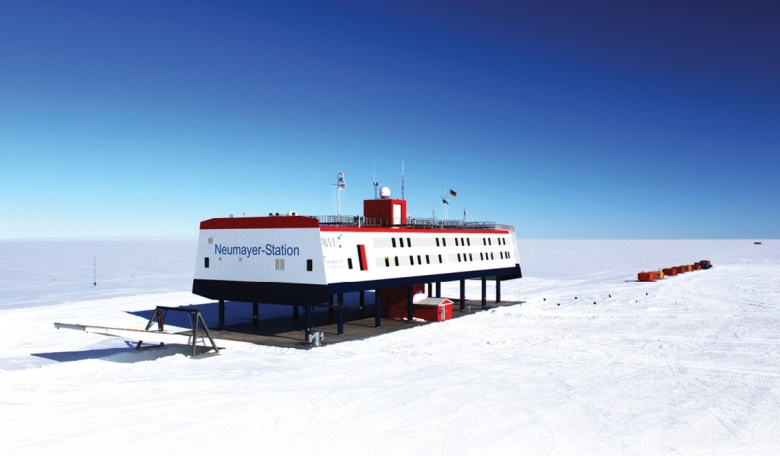In the blockbuster film The Martian stranded astronaut Mark Watney, presumed dead after a fierce storm on the surface, famously grew potatoes as a means to help him survive the hostile planet whilst awaiting rescue. The scenario of cultivating fresh food in remote locations is not so farfetched and any sustained human presence in space will require the development of new technologies to maintain environmental control, to manage waste, to provide water, oxygen and food to keep crew members healthy and psychologically fit. Bio-regenerative life support systems, in particular the cultivation of higher plants, are advantageous in this regard due to their ability to be used not only for food production but also carbon dioxide reduction, oxygen production, water recycling and waste management. For crews on long duration space missions, fresh crops will deliver important physiological health benefits and have a positive impact on psychological well-being. One such study currently underway is the German-led EDEN ISS project.
The EDEN ISS consortium will design and test essential controlled environment agriculture (CEA) technologies using an International Standard Payload Rack (ISPR) cultivation system for potential testing onboard the International Space Station (ISS).
Furthermore, a Future Exploration Greenhouse (FEG) is designed with respect to future planetary bio-regenerative life support system deployments.
The technologies will be tested in a laboratory environment as well as at the highly-isolated Antarctic Neumayer Station III, operated by the Alfred Wegener Institute. The overall facility, referred to as the EDEN ISS Mobile Test Facility (MTF), will be built in order to provide realistic mass flow relationships for the ISPR demonstrator and FEG. In addition to technology development and validation, food safety and plant handling procedures will be developed. These are integral aspects of the interaction between the crew and plants within closed environments.
The EDEN ISS project is a € 4.5 million European Union Horizon 2020 project supported via the COMPET-07-2014 - Space exploration - Life support sub-programme.
It had its official kick-off in March of 2015 and will continue until the completion of a year-long Antarctic deployment phase in which the EDEN ISS facility will be installed and operated in the vicinity of the Neumayer III Antarctic station. The EDEN ISS consortium is comprised of leading European experts (in addition to Canada) in the domain of human spaceflight and CEA. A partner from the USA also recently joined the consortium. The EDEN ISS scientific advisory board consists of the top scientists in the field of CEA from Russia, USA, Japan, Italy and Germany.
Find out more about the EDEN ISS project and its Antarctica operations in the full version of the article, available to our subscribers.














